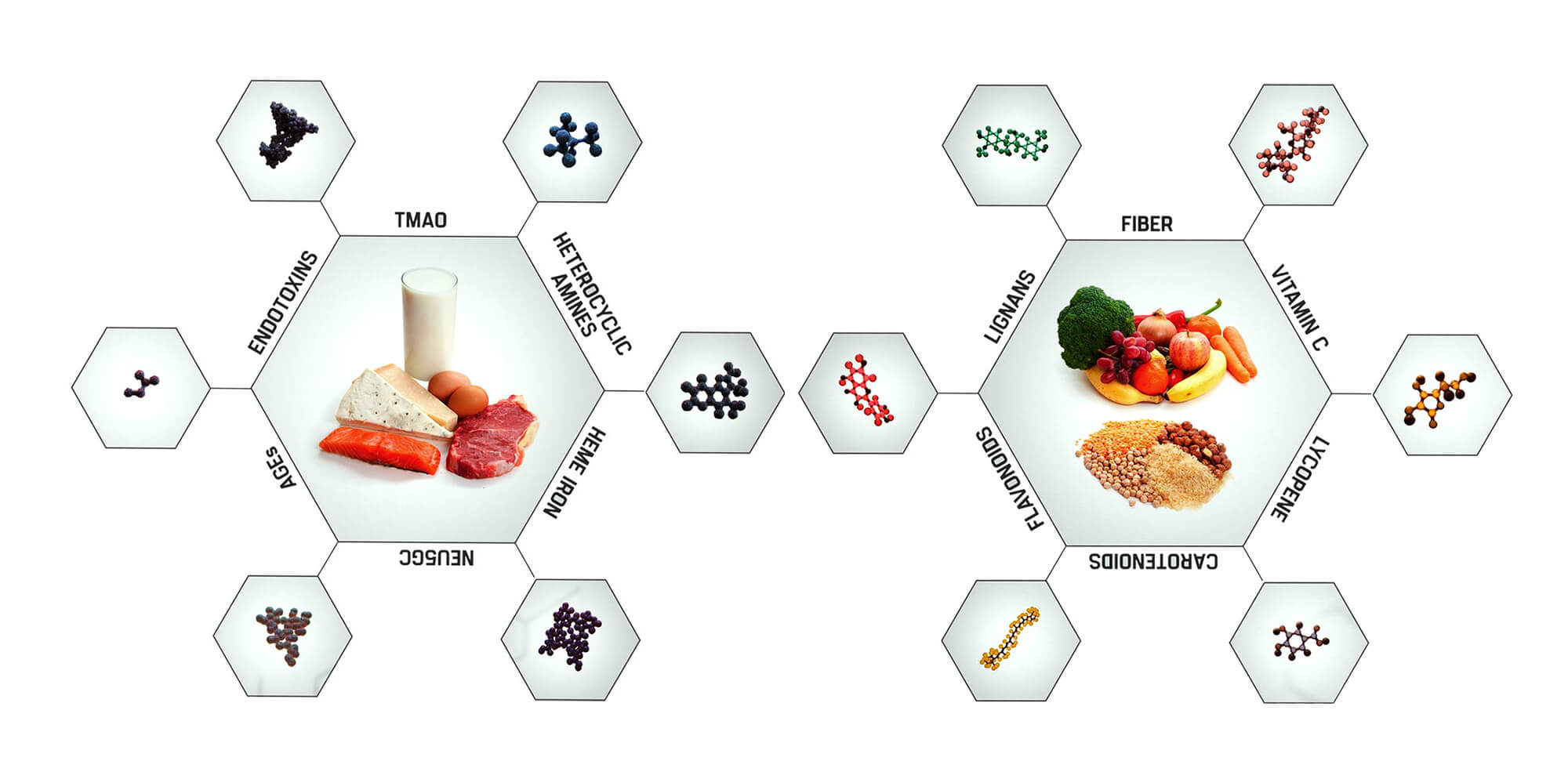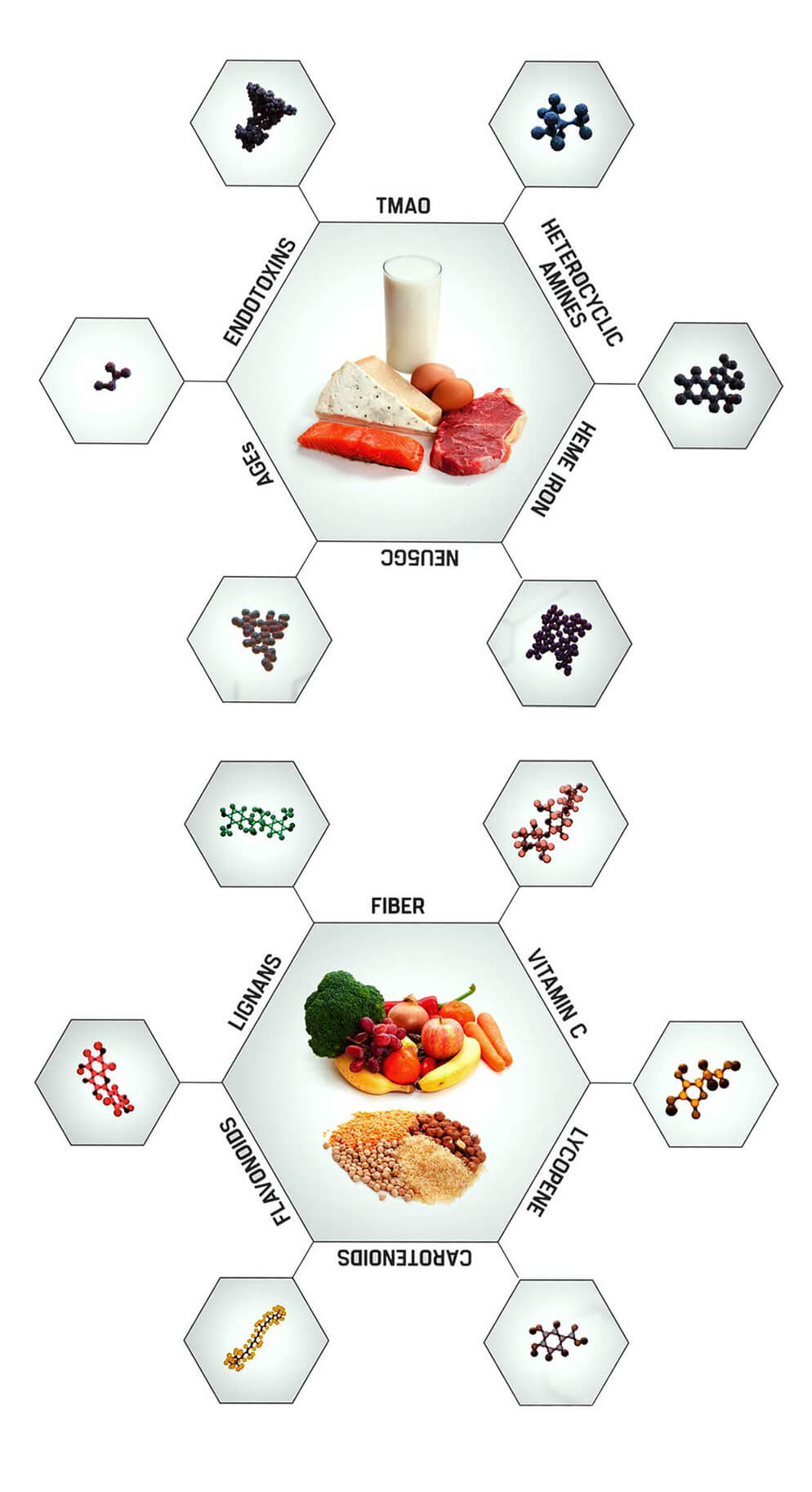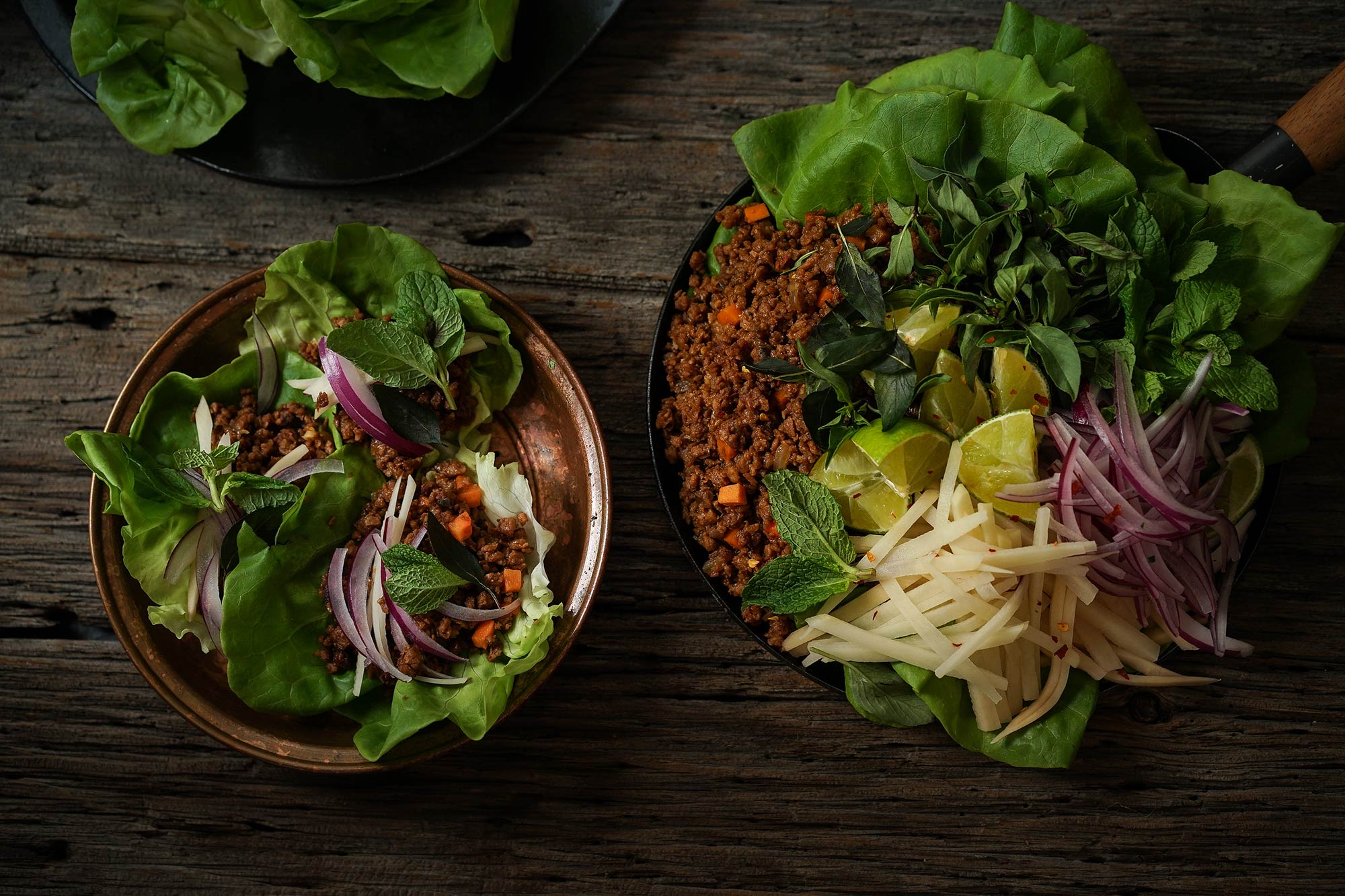

When it comes to nutrition, our “all or something” approach to plant-based eating cuts through the confusion, fusing cutting-edge science with practical advice.
For the vast majority of the population, nutrition and health are very confusing subjects. This confusion stems in part from the fact that most people look for information on these subjects online (1), where anyone with an opinion, regardless of their credentials, can pose as an authority and reach millions of people.
Since most people aren’t trained in nutrition and/or don’t have the time to read or interpret the actual research, this means that the companies and self-proclaimed experts with the most advertising dollars and/or the savviest social media strategies end up influencing the most people.
Making matters worse, countless studies are funded by food companies and lobby groups with the goal of making their product(s) seem ideal for athletic performance, weight loss and/or health. This “scientific research” filters down to doctors, who, in the United States, only receive an average of 20 hours of nutrition training during their entire medical education (2), and usually don’t have time to stay up to date on the most recent research. It also makes its way to dietitians and nutritionists — whose educational materials are also often funded by these same companies and lobby groups — as well as coaches, personal trainers, and other fitness/athletic professionals, who often base their recommendations on very outdated concepts.
“The formula works beautifully for people selling food. It works beautifully for people selling drugs to treat the diseases that bad food causes. And it works beautifully for the media, which can give us a new story about diet every day.”
Dr. David Katz, founding director of Yale University’s Yale-Griffin Prevention Research Center
As a result, most people feel overwhelmed and confused by all of the conflicting nutritional information they come across — Are carbs good or bad? Is exercise the key to weight loss? Should I really put butter in my coffee? — bouncing from one fad diet to another, or simply giving up and going back to their old eating habits.
Despite all of the confusion in the general population, decades of research from the world’s most trusted research institutions, published in the world’s most respected scientific journals, have painted a very clear picture of which eating patterns tend to improve health and fitness, and which do not.
The preponderance of scientific evidence suggests that an animal-based diet — where foods like meat, eggs and dairy are the foundation of most meals — decreases overall health, increases the risk of numerous diseases, and reduces our lifespans. Conversely, the more plants you eat, the healthier you tend to be, decreasing your risk of many major diseases while increasing the quality and length of our lives.


This basic but powerful conclusion has been reached via many fields of research, including epidemiology (population studies), nutritional biochemistry (how food affects the body), and biological anthropology (which includes the study of what humans are ‘built’ to eat). We dig deeper into these subjects in Optimizing Health.
The same underlying mechanisms that impact health (including blood flow, oxidative stress, inflammation, and hormone levels) also affect athletic performance, sexual function, body composition, cognitive function, and many other areas that play a major role in how we look, feel, and function. We discuss how food’s powerful influence over these mechanisms can affect athletics and fitness in Maximizing Performance.
Another consistent nutritional principle is that whole foods tend to be healthier than processed/refined foods. We prefer to use the term ‘refined’, since processing a food could simply mean chopping or cooking it, whereas refining a food typically means removing some or much of its nutrient content. For example, chopping a beet is technically ‘processing’ it, but ‘refining’ a beet into table sugar requires stripping away the fiber, folate, potassium, iron, and vitamin C, leaving only sugar. The same applies to the production of oils, white flours, and so on, where fiber and other key nutrients are removed in the refining process.
Refined foods can also include added ingredients, such as the preservatives found in processed meats, or the artificial flavors and colors found in candy.
While most people understand that sugary drinks like soda, fried foods like potato chips, and refined flour products like white bread or pastries are definitely not ideal for optimizing health or fitness, few people understand that a diet based on animal foods — whether whole (like chicken breast and eggs) or heavily processed (like bacon and cheese) — is of far greater concern than misguided fears like “eating too many carbs”. And even fewer understand that the overwhelming body of scientific evidence shows that choosing a diet centered around a wide variety of plants, especially in their whole form, is the single most powerful tool we have for the prevention, treatment, and even reversal of many of our most common diseases.

While nutrition can be a very confusing subject, researchers from a wide range of scientific disciplines agree on some very basic principles of what the optimal diet for performance and health looks like. This diet centers around plants with an emphasis on a wide variety of whole foods, whenever possible.
As clearly demonstrated in The Game Changers, a rapidly increasing number of world-class athletes are taking advantage of this knowledge and experiencing dramatic improvements in their performance as a result, smashing records and stereotypes along the way. While some people mistakenly believe that all of these athletes have personal chefs and/or superior genes, the reality is that there are also tens of millions around the world from all walks of life experiencing similar benefits, helping them look, feel and perform at their very best.
For a lot of people who watch The Game Changers, their immediate impulse is to overhaul their entire diet overnight. While many people are capable of doing this and sticking with it, just as many run into trouble once they get home and realize that their kitchens are still full of their regular food, that they don’t know where to buy (or how to cook) the ‘new’ food, and so on.
In order to help avoid these common experiences, we strongly recommend that you familiarize yourself with the free resources on this site, including our Recipes, Tips, FAQs, and Benefits section, and connect with our social media pages. While most people think eating better is simply a matter of willpower, the reality is that being prepared and supported is much more important.
We also encourage you, no matter how motivated you might feel, to move at whatever speed feels comfortable and sustainable. As the saying goes, “perfect is the enemy of good”, and nowhere is this clearer than with changing how you eat. Contrary to what most diet books and programs suggest, each positive step you take counts, and there is no single approach to changing your diet that works for everyone. This means that you — and only you — should decide what speed you want to move at, and how far you want to go.
Page References
(1) Fox S, Duggan M. Pew Internet and American Life Project. Health Online 2013. 2013 Jan 24.
(2) KM, Kohlmeier M, Zeisel SH. Nutrition education in U.S. medical schools: Latest update of a national survey. Acad Med. 2010 Sep;85(9):1537–42.

MAKING IT EASY
Incorporate plant-based eating into your life with simple substitutions and practical tips for cooking, shopping, eating out, and traveling.
Learn More
EATING LIKE A GAME CHANGER
Get all the resources you need to eat like a champion, including easy plant-based recipes. Whether you’re taking it slow or diving in, we’ve got what you need to fuel yourself like a champion.
Learn More
CONNECT
Explore the ways you can connect with the athletes and experts from the film, and sync up with other fans.
Learn More